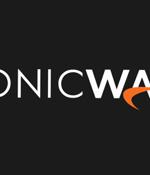Security News

Samba is a widely-used open source toolkit that not only makes it easy for Linux and Unix computers to talk to Windows networks, but also lets you host a Windows-style Active Directory domain without Windows servers at all. Anyone with a long enough memory will recall, probably without a tremendous amount of affection, hooking up OS/2 computers to share files using SMB over NetBIOS. Samba started life in the early 1990s thanks to the hard work of Australian open source pioneer Andrew Tridgell, who figured out from first principles how SMB worked so that he could implement a compatible version for Unix while he was busy with his PhD at the Australian National University.

In a building under construction at the Advanced Technologies Park in Be'er Sheva, the "Cyber capital" of Israel, a new governmental lab is also taking shape: the National Cyber-Kinetic Lab for ICS and OT. A joint venture between the Israel Ministry of Energy and the Israel National Cyber Directorate, it will serve as a sandbox for testing computing devices embedded in physical processes and simulating cyber-attacks on scaled-down models of real-life industrial and critical infrastructure control systems. "The lab should be up and running in a couple of months and we plan to open it to the world in the second part of 2023," Dadi Gertler, Executive Director of Technology Systems within the Cyber Technology Unit at the INCD, told Help Net Security at Cyber Week in Tel Aviv last month.

FileWave's mobile device management system has been found vulnerable to two critical security flaws that could be leveraged to carry out remote attacks and seize control of a fleet of devices connected to it. "The vulnerabilities are remotely exploitable and enable an attacker to bypass authentication mechanisms and gain full control over the MDM platform and its managed devices," Claroty security researcher Noam Moshe said in a Monday report.

Further highlighting this conflict is the finding that 46% of respondents have bypassed security to improve user experiences. Survey respondents are largely united in their belief that monitoring the impact of security solutions on user experiences is critical.

Network security company SonicWall on Friday rolled out fixes to mitigate a critical SQL injection vulnerability affecting its Analytics On-Prem and Global Management System products. The vulnerability, tracked as CVE-2022-22280, is rated 9.4 for severity on the CVSS scoring system and stems from what the company describes is an "Improper neutralization of special elements" used in an SQL command that could lead to an unauthenticated SQL injection.

SonicWall has published a security advisory today to warn of a critical SQL injection flaw impacting the GMS and Analytics On-Prem products.The flaw, tracked as CVE-2022-22280, allows SQL injection due to improper neutralization of special elements used in an SQL Command.

Atlassian has rolled out fixes to remediate a critical security vulnerability pertaining to the use of hard-coded credentials affecting the Questions For Confluence app for Confluence Server and Confluence Data Center. While this account, Atlassian says, is to help administrators migrate data from the app to Confluence Cloud, it's also created with a hard-coded password, effectively allowing viewing and editing all non-restricted pages within Confluence by default.

An assessment from security firm BitSight found six vulnerabilities in the Micodus MV720, a GPS tracker that sells for about $20 and is widely available. The researchers who performed the assessment believe the same critical vulnerabilities are present in other Micodus tracker models.

The most severe of the issues are CVE-2022-20857, CVE-2022-20858, and CVE-2022-20861, which impact Cisco Nexus Dashboard for data centers and cloud network infrastructures and could enable an "Unauthenticated remote attacker to execute arbitrary commands, read or upload container image files, or perform a cross-site request forgery attack." CVE-2022-20857 - Cisco Nexus Dashboard arbitrary command execution vulnerability.

Atlassian has fixed three critical vulnerabilities and is urging customers using Confluence, Bamboo, Bitbucket, Crowd, Fisheye and Crucible, Jira and Jira Service Management to update their instances as soon as possible.There is no mention of these vulnerabilities being exploited in the wild, but flaws in Atlassian Confluence are often leveraged by attackers.